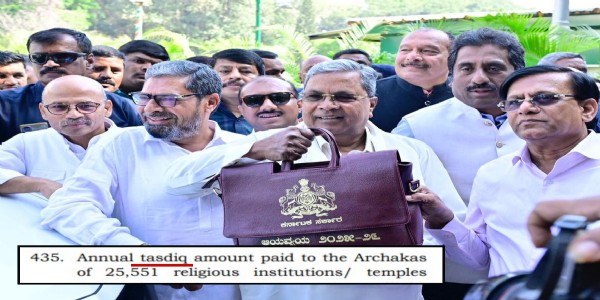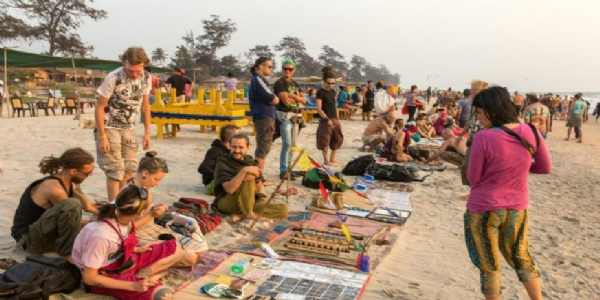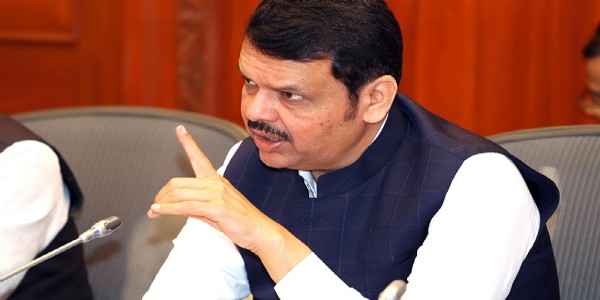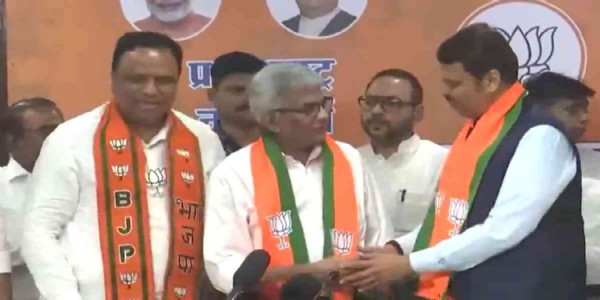Gram Panchayat Election Results: Signal for Dynastic Politics in Maharashtra
Total Views |
The gram panchayat election outcome in Maharashtra has come as a big boost to the Mahayuti government. Three partners – BJP, Eaknath Shinde-led Shiv Sena, and Ajit Pawar-led NCP have won more than 1700 village-level elections out of 2359. As against this Maha Vikas Aaghdi, comprising Sharad Pawar, Uddhav Thackeray, and Congress, managed to win around 465 villages.
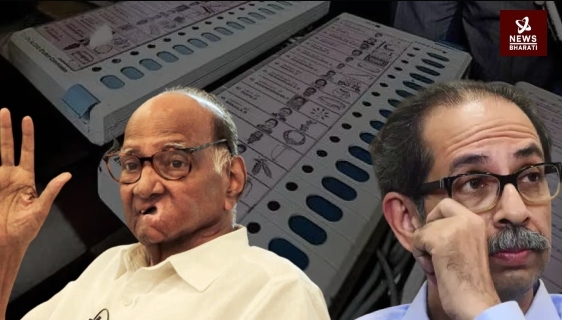
Election results are significant on several counts. Firstly, a general perception was created that the public mood was against the Shinde-Fadnavis-Pawar government and MVA had sympathy among the voters. Secondly, it was the first election after Ajit Pawar's camp decided to join the Shinde-Fadnavis government. Thirdly, voting took place amidst the Maratha reservation agitation. Lastly, gram panchayat elections are reflective of rural mood.
The strong undercurrent, which emerged from grampanchayat election poses a serious question of whether the days of Thackeray-Pawar families are over. Several incidents after the demise of Bal Thackeray show that the magnetic power of `Thackeray’ was eroding rapidly. The process was accelerated after Uddhav Thackeray joined hands with Sharad Pawar and the Congress, ditching the pre-poll alliance with BJP. Grampanchayat election results show that Uddhav Thackeray's influence was further waning. The party’s impact is expected to be restricted to a few parts of Mumbai and Konkan in the near future.
More shocking is the news for Sharad Pawar, who tried all the methods to gain public sympathy after Ajit Pawar walked away with almost all the MLAs to join the government. The political influence of Sharad Pawar is always a matter of debate as his party is mainly restricted to four districts of western Maharashtra. However, fact cannot be denied that he has some influence in rural Maharashtra even though it could never translate into votes. Senior Pawar won only 145 villages. Ajit Pawar-led faction, on another hand, won 392 villages and stood second after BJP. Shockingly, junior Pawar also emerged victorious in Baramati tehsil and Pune district, which has been the bastion of his uncle for more than five decades. Supporters of senior Pawar claim that they had not contested the election but the question remains unanswered as to why it did not fight the election. Obviously, it must be due to the Ajit Pawar factor.
Notwithstanding situational analysis of the election outcome, a strong undercurrent seems to be emerging in Maharashtra politics, which has been affected by two dynasties – Pawar and Thackeray. Both families have been enjoying the benefits of power with mutual understanding. Thackeray concentrates on Mumbai and prefers to overlook the rest of Maharashtra while Pawar never pays attention to Mumbai and looks after the rest of Maharashtra. Mutual understanding between two families, which evolved in decades, takes care of each other.
But the time has come when two families are likely to experience adverse effects of dynastic politics in the absence of popular support. Even a leader like Bal Thackeray was no exception to this phenomenon. Bal Thackeray’s nephew – Raj - revolted and formed his own outfit – Maharashtra Nav Nirman Sena (MNS). It was necessarily against Bal Thackeray and his son Uddhav. Raj Thackeray was more acceptable to Sena’s cadre but Bal Thackeray was a victim of dynastic politics when he announced his own son as heir of the party. Shiv Sena had seen six major revolts and five of them were against Uddhav’s leadership.
Senior Pawar is currently undergoing a similar turbulence. This turbulence is the result of dynastic politics. Ajit Pawar’s revolt against `Sharad's uncle’ is a family dispute. This dispute is overrunning the so-called legacy and has the benefits of power. Reality is that Ajit Pawar showed patience for a long time even though Sharad Pawar had signaled on a number of occasions that his daughter Supriya would be his heir apparent.
For a long time, Ajit Pawar carried a resentment that NCP did not claim the post of chief minister for unknown reasons. In other words, Ajit Pawar carries a grudge that his uncle did not allow him to be chief minister. What was the reason? Obviously, Supriya Sule would have been left with no option but to adopt a second position if Ajit had been made chief minister.
Pawar-Thackeray families are victims of their own politics. Both families neglect to read the writing on the wall. NCP has several capable leaders but none of them grew beyond a certain limit because of the inbuilt mechanism of a dynastic party. In Shiv Sena, the leaders, who were part of Matoshree’s coterie, managed to survive while those, who got suffocated, opted for some other option. Raj Thackeray, Narayan Rane and Ekanath Shinde stand in this category. Similarly, long-time close associates of Sharad Pawar preferred to go with Ajit Pawar as the party could never grow as per expectations. Why did the NCP not grow? Reason – everybody, including Pawar family members, was well aware of its inbuilt limitations because of dynastic politics.
Dynastic politics is the curse for democracy. Family interests get priority while ideology, democracy and commitments always take a back seat. It not merely suppresses merit within the party but promotes incapable and uncompetitive elements. For example, Maharashtra had at least four elected members of the Pawar family. Several are waiting for the right time to enter politics. Similarly, Uddhav launched his son- Aditya when his own leadership was under scanner. Thackeray and Pawar had a third generation in politics and rebellion was inevitable.
Dynastic parties are run like private companies and eventually become like corporate companies. Founder of the company has the last word and it tends to be a dictatorial set up. Self-interest and not ideology is always a decisive factor. How can one explain Sharad Pawar’s alliance with Sonia Gandhi’s Congress? How will one explain Uddhav Thackeray `U’ turn and ditching BJP?
Neither Bal Thackeray nor Sharad Pawar understood that dynastic rule was one of the major reasons for Congress decline at national level. Pawars and Thackerays fail to realise that family run regional parties have no role as they used to play in the past. People are not in mood to shelter dynastic politics as they have experienced ill effects of dynastic politics. They also have witnessed what miracles could happen if true democratic values are followed.
In 2012, Bal Thackeray addressed the party's traditional Vijayadashami rally through video conferencing as his health was not good. In his last speech, he made an emotional appeal to the people to take care of Uddhav and Aditya. Sharad Pawar made the same mistake by announcing his daughter Supriya Sule as party’s working president.But dynastic politics had made them blind to understand aspirations of changing India.
As expected UBT Shiv Sena stood at the bottom. It has won only 110 villages while the Sharad Pawar group has emerged in only 145 villages. Congress is the largest party in MVA by winning 217 Grampanchayat elections. As against this, BJP has won 750 and Ajit Pawar camp has won 382 village gram panchayats. Shinde’s Sena stood in third position by bagging 273 villages.

Election results are significant on several counts. Firstly, a general perception was created that the public mood was against the Shinde-Fadnavis-Pawar government and MVA had sympathy among the voters. Secondly, it was the first election after Ajit Pawar's camp decided to join the Shinde-Fadnavis government. Thirdly, voting took place amidst the Maratha reservation agitation. Lastly, gram panchayat elections are reflective of rural mood.
The strong undercurrent, which emerged from grampanchayat election poses a serious question of whether the days of Thackeray-Pawar families are over. Several incidents after the demise of Bal Thackeray show that the magnetic power of `Thackeray’ was eroding rapidly. The process was accelerated after Uddhav Thackeray joined hands with Sharad Pawar and the Congress, ditching the pre-poll alliance with BJP. Grampanchayat election results show that Uddhav Thackeray's influence was further waning. The party’s impact is expected to be restricted to a few parts of Mumbai and Konkan in the near future.
More shocking is the news for Sharad Pawar, who tried all the methods to gain public sympathy after Ajit Pawar walked away with almost all the MLAs to join the government. The political influence of Sharad Pawar is always a matter of debate as his party is mainly restricted to four districts of western Maharashtra. However, fact cannot be denied that he has some influence in rural Maharashtra even though it could never translate into votes. Senior Pawar won only 145 villages. Ajit Pawar-led faction, on another hand, won 392 villages and stood second after BJP. Shockingly, junior Pawar also emerged victorious in Baramati tehsil and Pune district, which has been the bastion of his uncle for more than five decades. Supporters of senior Pawar claim that they had not contested the election but the question remains unanswered as to why it did not fight the election. Obviously, it must be due to the Ajit Pawar factor.
Notwithstanding situational analysis of the election outcome, a strong undercurrent seems to be emerging in Maharashtra politics, which has been affected by two dynasties – Pawar and Thackeray. Both families have been enjoying the benefits of power with mutual understanding. Thackeray concentrates on Mumbai and prefers to overlook the rest of Maharashtra while Pawar never pays attention to Mumbai and looks after the rest of Maharashtra. Mutual understanding between two families, which evolved in decades, takes care of each other.
But the time has come when two families are likely to experience adverse effects of dynastic politics in the absence of popular support. Even a leader like Bal Thackeray was no exception to this phenomenon. Bal Thackeray’s nephew – Raj - revolted and formed his own outfit – Maharashtra Nav Nirman Sena (MNS). It was necessarily against Bal Thackeray and his son Uddhav. Raj Thackeray was more acceptable to Sena’s cadre but Bal Thackeray was a victim of dynastic politics when he announced his own son as heir of the party. Shiv Sena had seen six major revolts and five of them were against Uddhav’s leadership.
Senior Pawar is currently undergoing a similar turbulence. This turbulence is the result of dynastic politics. Ajit Pawar’s revolt against `Sharad's uncle’ is a family dispute. This dispute is overrunning the so-called legacy and has the benefits of power. Reality is that Ajit Pawar showed patience for a long time even though Sharad Pawar had signaled on a number of occasions that his daughter Supriya would be his heir apparent.
For a long time, Ajit Pawar carried a resentment that NCP did not claim the post of chief minister for unknown reasons. In other words, Ajit Pawar carries a grudge that his uncle did not allow him to be chief minister. What was the reason? Obviously, Supriya Sule would have been left with no option but to adopt a second position if Ajit had been made chief minister.
Pawar-Thackeray families are victims of their own politics. Both families neglect to read the writing on the wall. NCP has several capable leaders but none of them grew beyond a certain limit because of the inbuilt mechanism of a dynastic party. In Shiv Sena, the leaders, who were part of Matoshree’s coterie, managed to survive while those, who got suffocated, opted for some other option. Raj Thackeray, Narayan Rane and Ekanath Shinde stand in this category. Similarly, long-time close associates of Sharad Pawar preferred to go with Ajit Pawar as the party could never grow as per expectations. Why did the NCP not grow? Reason – everybody, including Pawar family members, was well aware of its inbuilt limitations because of dynastic politics.
Dynastic politics is the curse for democracy. Family interests get priority while ideology, democracy and commitments always take a back seat. It not merely suppresses merit within the party but promotes incapable and uncompetitive elements. For example, Maharashtra had at least four elected members of the Pawar family. Several are waiting for the right time to enter politics. Similarly, Uddhav launched his son- Aditya when his own leadership was under scanner. Thackeray and Pawar had a third generation in politics and rebellion was inevitable.
Dynastic parties are run like private companies and eventually become like corporate companies. Founder of the company has the last word and it tends to be a dictatorial set up. Self-interest and not ideology is always a decisive factor. How can one explain Sharad Pawar’s alliance with Sonia Gandhi’s Congress? How will one explain Uddhav Thackeray `U’ turn and ditching BJP?
Neither Bal Thackeray nor Sharad Pawar understood that dynastic rule was one of the major reasons for Congress decline at national level. Pawars and Thackerays fail to realise that family run regional parties have no role as they used to play in the past. People are not in mood to shelter dynastic politics as they have experienced ill effects of dynastic politics. They also have witnessed what miracles could happen if true democratic values are followed.
In 2012, Bal Thackeray addressed the party's traditional Vijayadashami rally through video conferencing as his health was not good. In his last speech, he made an emotional appeal to the people to take care of Uddhav and Aditya. Sharad Pawar made the same mistake by announcing his daughter Supriya Sule as party’s working president.But dynastic politics had made them blind to understand aspirations of changing India.
Bharati Web





